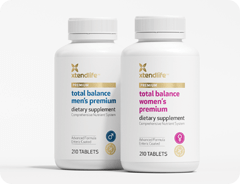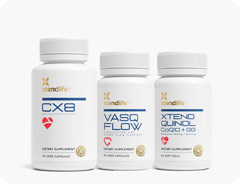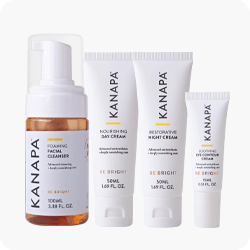The skin is not only the largest of our body’s organs – accounting for the largest proportion of body weight – it’s also pretty busy. While scientists once thought skin only existed to protect our internal organs from the dangers of the external environment, they eventually discovered that skin has the same types of metabolic processes as the rest of our body.
And just as a slow metabolism can make it tricky for you to lose weight, a sluggish skin metabolism can slow cell turnover, leading to dull and lackluster skin.
The metabolic rate of the skin is determined by how quickly the cells of the skin communicate with one another, respond to issues such as inflammation and take charge of the situation, like an army of ants planning how it will work together to haul away some unsuspecting picnicker’s lunch.
One of the reasons why our skin shows signs of aging is that the metabolism of our skin – like our body’s metabolism - slows down with age.
But all sorts of things beyond the age factor can get in the way of cell communication and slow metabolism, including free radicals, poor health habits (think excessive sun exposure, too much sugar and cigarette smoking) and a lack of key nutrients to help support the process.
But before you gaze regretfully in the mirror, cursing every bad decision you made about skin health before you knew what was the right thing to do, remember that just as we can rev up our digestive metabolism through exercise and eating regular meals, we can speed up our skin’s metabolism, too.
Fighting free radicals
Free radicals are a nightmare for skin, and are responsible for most of the signs associated with aging.
The bad guys are damaged cells that ravage the body in search of a molecule they need to be restored to normal, and they’ll take them from anywhere, leaving damaged cells in their wake.
Antioxidants are the superheroes of the process, and they are able to provide the molecule the free radical needs without becoming damaged themselves.
Taking antioxidants through food and supplements (such as our Xtendlife Total Balance or Zupafood formula) and absorbing them into your skin through our skin care line ensures that you’re fighting the free radicals from both inside and out, lessening the impact and supporting skin metabolism and cell turnover to reveal younger, more lustrous skin.
Get an extra boost from adding fruits and veggies in a mix of rainbow colors – purple cabbage, beets, oranges, blueberries, lemons, strawberries, raspberries, sweet bell peppers – to ensure that you get a wide range of antioxidants to feed your skin well.
Kick those butts
Smoking causes wrinkles just by the act of inhaling, but there’s more to the story.
Because cigarettes are packed with poisons, they damage the mitochondria, the hardest working skin cells, which can slow the communication between the cells – and cell metabolism.
“Smoking inhibits communication that's normal and good, and sends out signals to break down existing collagen, which causes wrinkles,” Dr. Jeannette Graf, an assistant clinical professor of dermatology at Mount Sinai Medical Center in New York.
Tobacco use also reduces blood flow to the skin, creating shallow skin that’s prone to sagging.
Skin is resilient though, and some of the damage is reversible. As soon as you kick the habit, cells begin to repair themselves, boosting blood flow to the skin and erasing that sallow tone.
Toxins in your skin care?
You might think you’re doing your skin a big favor by using expensive treatments and serums, but many of the top products on the market actually contain ingredients which are harmful to your skin, such as paraben. The toxic effects of these ingredients can slow metabolism considerably by damaging the cellular structure of the skin.
Human skin absorbs about 60 percent of what we put on it, therefore, using skincare products that are free from toxins can be a big step toward boosting the skin’s metabolic rate and lowering the risk of a host of problems.
Ones to try:
Our skin care line, including our Foaming Facial Cleanser and our collection of moisturizers for both women and men, includes ingredients from nature, such as nut oils (the uber-moisturizing shea and avocado oils among them) along with natural antibacterial such as Manuka honey and kiwi extract. Therefore, you can use them safely, knowing that your skin is absorbing nutrients that will support skin health and metabolism safely and effectively.
References:
- http://www.ncbi.nlm.nih.gov/pubmed/1608661


 Supplements
Supplements Bundles
Bundles










